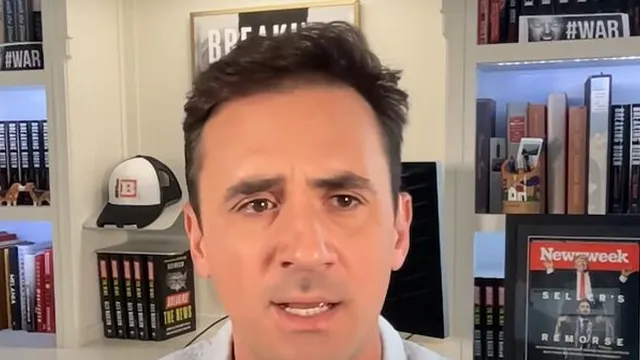
Jeffrey Goldberg's mistake raises ethical questions in national security chat
2025-03-30 13:38- Jeffrey Goldberg mistakenly participated in secure discussions meant for Trump administration officials.
- Byron York questioned the ethical implications of Goldberg's presence and the appropriateness of using Signal for sensitive talks.
- The situation raises significant ethical dilemmas regarding journalists' responsibilities in national security matters.
Express your sentiment!
Insights
In recent discussions surrounding a controversy involving Jeffrey Goldberg, editor of the Atlantic, it was uncovered that he inadvertently participated in secure communications meant for high-level Trump administration officials. The incident occurred while discussions were taking place about military operations against the Houthis in Yemen. Byron York analyzed the situation on WMAL radio, particularly questioning how Goldberg gained access to these discussions given the Atlantic's known opposition to President Donald Trump. Goldberg had initially assumed the invitation to the chat was a prank, making his participation more controversial when sensitive topics, including war plans, surfaced. Defense Secretary Pete Hegseth later disputed claims that classified information was shared, demonstrating a clear conflict between the statements of officials involved and what occurred in the chat. York emphasized the need for further investigation, indicating that both the use of Signal for sensitive communications and the inclusion of Goldberg raised significant ethical concerns. The situation has generated questions about the responsibilities that journalists hold when finding themselves in unintentional circumstances involving national security matters. Critics, including York and others, wondered why Goldberg didn't identify himself right away upon realizing his presence was unintentional, which could have prevented any potential leaks of information. Moreover, questions have been raised regarding who had Goldberg's contact details and why he was allowed into such private discussions. This incident serves as a reminder of the potential consequences of inaccurately managing secure communications and the importance for all parties involved to adhere to proper protocols. As discussions surrounding this incident continue, stakeholders on both sides are eager to clarify what happened within these conversations in order to address the uncertainties and lingering ethical questions it has raised.
Contexts
The involvement of journalists in secure government discussions presents a complex interplay between the imperative for transparency and the necessity of confidentiality. Journalists serve a crucial role in shaping public discourse, providing a check on government power, and informing citizens about key policy decisions that affect their lives. However, when journalists gain access to sensitive governmental conversations, the stakes are significantly heightened. The necessity of safeguarding national security interests often stands at odds with the media's mission to report and the public's right to know. This conflict raises important questions about the appropriate limits of journalistic access and the potential consequences that can arise from the release of classified information. One potential implication of journalists participating in secure government discussions is the risk of inadvertently leaking information that may compromise national security. With the increasing complexity of global challenges, including terrorism and cyber threats, the information exchanged in these discussions can be sensitive and critical to safety. Should journalists publish details perceived to be in the public's interest but damaging to national security, it could lead to severe repercussions, including the endangerment of lives and the potential undermining of diplomatic relations. As a result, governments may become more restrictive in granting access to journalists, thus limiting their ability to inform the public fully. Another significant consideration is the ethical responsibilities of journalists who have access to confidential government discussions. Journalists must navigate the thin line between responsible reporting and the potential for sensationalism or exploitation of sensitive information for a story's value. Unlike other entities, journalists are bound to the ethical standards of their profession, which include accuracy, fairness, and the minimization of harm. However, the pressure to report exclusive stories can occasionally conflict with these standards, leading to a precarious situation where the integrity of the news media is at stake. This ethical dilemma necessitates robust guidelines and self-regulation within the journalism community to preserve its credibility and public trust. Lastly, the relationship between journalists and government officials can alter the dynamics of information dissemination. When journalists are included in discussions, they may shape the narratives surrounding policy initiatives, as their perspectives can influence public opinion and political discourse. This dual role can lead to a symbiotic relationship, where journalists are seen as partners in governance, promoting transparency and accountability. However, this relationship can also give rise to concerns regarding bias and favoritism, where certain media outlets may receive preferential treatment. This highlights the importance of maintaining independent journalistic practices while engaging with government discussions, ensuring that the media can fulfill its role as a watchdog without compromising its objectivity. Ultimately, the implications of journalists in secure government discussions underscore the need for a balanced approach that protects both national security interests and the public's right to information.